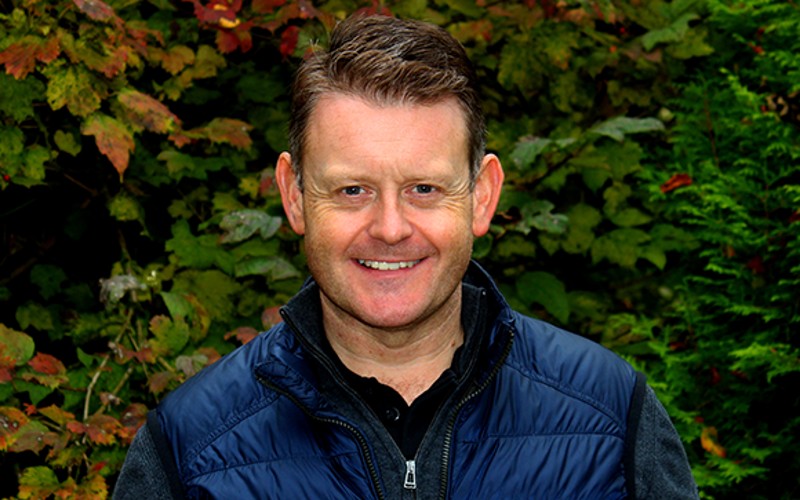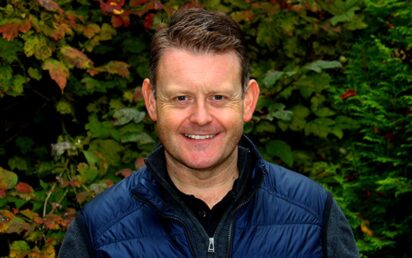It’s fair to say private equity gets a mixed press.
Critics accuse them of asset-stripping while supporters say they provide growth capital at the right time.
Ask Matthew Hirst for his opinion and he’s unequivocal in his answer.
Hirst was working for Bglobal plc when he recognised an opportunity for an MBO.
In a deal backed by NorthEdge, Hirst led the MBO in June 2014 and became the CEO of the newly-formed Utiligroup.
NorthEdge invested £16 million in the energy tech firm and three years later the company was bought for a reported £100m by US private equity giant Accel-KKR after beating off interest from around 60 potential investors.
Utiligroup rebranded as ESG and Hirst is the CEO of a company that employs 500 people and has offices in the UK, US and Japan.
“We have had private equity backing for seven years, initially with NorthEdge and then Accel-KKR,” he tells TechBlast.
“During those seven years we have improved every single aspect of our business. We have invested in new products, we have invested in people, we have management academies and a mentorship programme. We’ve built proper processes.
“If you’re thinking about working with private equity, my advice is simple: do what you say you’re going to do. It’s no different in private equity so you have to communicate well.
“One bit of advice I was given early on from a guy who had been through private equity was to make sure you flow good news and bad news to your private equity partner at exactly the same pace. Don’t hold back bad news and don’t rush good news.”
Hirst’s first foray into the world of private equity began before the 2014 MBO.
“I saw the opportunity to do an MBO for a section of the Bglobal business,” he recalls. “We could see real disruption in the energy retail market. It was exciting. We were at the start of the smart meter roll-out so every single home in the country needed smart meters.
“We saw an opportunity to develop software to connect to the smart meter in real time.
“The business was unappreciated in its former home. To buy that business and grow, it needed private equity backing – and my partners and I didn’t have the backing to do it ourselves.
“I did loads of research before pulling the trigger. I found a really good adviser in Gordon Lane at Seneca and I worked with Gordon and Seneca over a number of years. They helped me find the right partner.
“What people perhaps don’t tell you is finding your [ideal] private equity partner is really important because it’s a partnership. Not everything goes right in business and you need to know they’re with you when times are challenging.
“A mistake that companies make is they say they want to go for growth but they don’t put in place the infrastructure ahead of time for that growth – so when growth does come, they’ve got a problem delivering that and the growth stalls.
“We brought in a CFO who is experienced in private equity businesses and recognised we needed to get on the front foot and invest ahead of time in the people and the products we’d be selling.
“The MBO took a year from first approaching the existing owners of the business. It was more complicated because we were a PLC and needed formal shareholder approval.”
Hirst was convinced a PE-backed MBO was the way to go, but admits he was nervous.
“We all took huge personal risk,” he says. “They like to call it ‘hurt money’. The conversation with my wife went something on the lines of ‘I do not want to look back when I’m 50 and say I played it safe and didn’t take the risk’. She was hugely supportive. I didn’t want to look back with regret.”
Over NorthEdge’s investment period, Utiligroup saw rapid growth with turnover increasing by over 200%.
Hirst praises the role of his former chairman Ian Kelly and says it’s important to stay true to yourself.
“Everyone gets treated exactly the same here,” he explains. “Martin Evans and John Furness, who were my mentors, had that approach and I love it. I’ve never had a company car and I’ve never had an office. It’s normal to me.
“That doesn’t mean to say you don’t need to learn lessons. You need to toughen up but not at the expense of treating people the right way.
“I’ve always treated people the way that I’ve wanted to be treated but that doesn’t mean you don’t have to deliver bad news and tough messages sometimes – but you do it in a respectful way.
“There’s no problem that this business will encounter that is new.”
Look after your customers – they are the people at the coalface
He continues: “We’ve got a terrific relationship with Accel-KKR. We felt good about them from the start. We felt good about ESG, who are the portfolio company that we became part of. It’s all about getting on with your private equity partner.
“Right from the start it was about building a quality business. We brought new people on. We have brought senior appointments in that weren’t cheap in operations, sales, marketing and strategy.”
ESG operate three core energy markets in North America, Japan and the UK with their headquarters being in Chorley.
Reflecting on the MBO and his private equity journey, the father-of-two says: “When I look back I was 36. I had never worked in PE before. I was lucky to have a chairman in Ian Kelly who was very supportive. I’m less reliant on them now but it’s still great to have people to bounce ideas off.
“I’m immensely proud of what we’ve done for our people. We are playing a key role in the energy transition towards digitalisation and net zero, in particular with the work we’ve done around smart meters. That’s what drives me.”
Hirst says the pandemic has changed the way tech companies work forever.
“When COVID-19 struck we trusted people to be really open with us about the challenges at home and we’ve been flexible with them about the times and days they work,” he explains.
“For me you have to be more honest and more open than you’ve ever been before. It has to start with me. I’m communicating more with staff than I’ve ever done before. I don’t think that will ever change.”
Hirst presents to his staff at least every month and does a Q&A, with no question off limits. “I’ll answer every single question, good and bad,” he says emphatically.
There’s been no mandate for staff to return to the office, although half the staff have chosen to come back on a regular basis.
“I think you’ll risk losing really good people if you start mandating that people will have to get back in the office,” he says.
“It’s a global recruitment race. It’s not a regional jobs market anymore, whether that’s in our Boston office or our base in the North of England.
“It truly is a global jobs market and we’ve done a great job of adapting to that. There’s more competition and everyone wants tech skills.”


